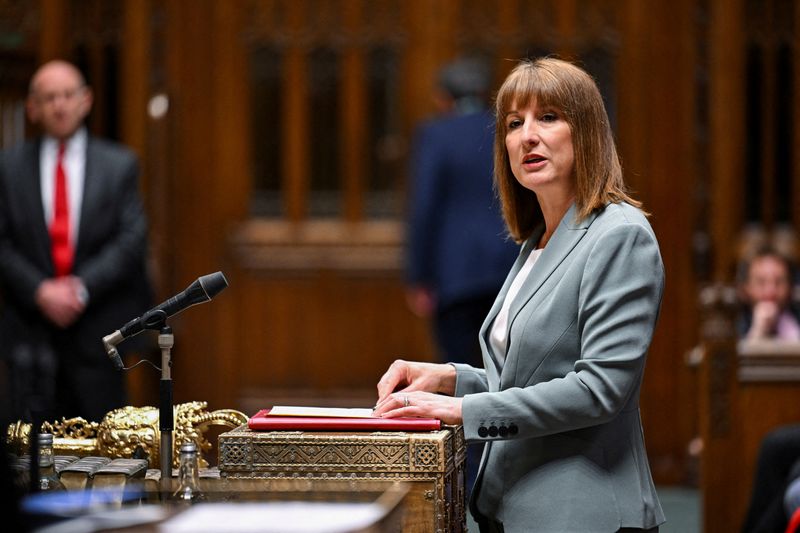In a surprising revelation, UK budget forecasters have admitted that their economic predictions have been overly optimistic, potentially posing significant challenges for the country’s fiscal strategy. This admission could complicate the efforts of Rachel Reeves, the Shadow Chancellor, in shaping future economic policies.
The Office for Budget Responsibility (OBR), the independent body responsible for economic forecasting, acknowledged this week that their previous projections may have been too positive. This comes at a time when the UK economy is grappling with inflationary pressures and the aftermath of the pandemic, raising questions about the reliability of fiscal forecasts.
Implications for Economic Policy
The announcement comes as the UK government is under pressure to address rising living costs and economic recovery. The OBR’s admission could undermine confidence in the government’s ability to manage the economy effectively. Rachel Reeves, who has been vocal about the need for robust economic planning, may find her task more challenging if forecasts continue to miss the mark.
According to sources familiar with the matter, the OBR’s forecasts have historically played a crucial role in shaping government policy. However, the latest admission raises concerns about the potential for fiscal missteps if future projections remain overly optimistic.
Expert Opinions and Analysis
Economists have weighed in on the implications of the OBR’s revised outlook. Dr. Jane Thompson, a senior economist at the London School of Economics, noted, “Overly optimistic forecasts can lead to complacency in policy-making, which is dangerous in a volatile economic environment.” She added that accurate forecasting is essential for effective fiscal management, particularly in times of economic uncertainty.
Meanwhile, other experts have pointed out that the OBR’s admission is a step in the right direction. “Acknowledging forecasting errors is crucial for improving future accuracy,” said Mark Ellis, a financial analyst at Global Markets Insight. “It shows a willingness to adapt and refine methodologies, which can only benefit long-term economic planning.”
Historical Context and Comparisons
This development follows a historical pattern where economic forecasts have occasionally missed the mark. In the early 2000s, similar forecasting errors led to significant policy adjustments. The financial crisis of 2008 further highlighted the challenges of economic prediction, prompting a reevaluation of forecasting models worldwide.
Comparatively, other countries have also faced challenges with economic forecasting. The United States, for example, has experienced similar issues, leading to debates about the role of independent forecasting bodies in shaping fiscal policy.
Future Steps and Potential Outcomes
Looking ahead, the UK government and the OBR are likely to focus on refining their forecasting models to improve accuracy. This could involve incorporating more dynamic economic indicators and adjusting for unforeseen global events, such as pandemics or geopolitical tensions.
For Rachel Reeves and other policymakers, the challenge will be to balance optimism with realism in economic planning. Ensuring that fiscal policies are grounded in accurate data will be crucial for maintaining economic stability and public trust.
As the UK navigates these economic challenges, the role of accurate forecasting becomes increasingly important. The OBR’s admission serves as a reminder of the complexities involved in economic prediction and the need for continuous improvement in forecasting methodologies.
The move represents a pivotal moment for UK economic policy, with potential ramifications for fiscal strategy and public confidence. As the situation unfolds, stakeholders will be watching closely to see how the government and the OBR respond to these challenges.
About The Author
 PrideStaff’s Visalia Relocation Boosts Service and Community Engagement
PrideStaff’s Visalia Relocation Boosts Service and Community Engagement Vintage Pyrex Dishes from the 60s Fetch Thousands, Here’s Why
Vintage Pyrex Dishes from the 60s Fetch Thousands, Here’s Why Comcast Unveils Transparent Pricing Plans to Regain Customer Trust
Comcast Unveils Transparent Pricing Plans to Regain Customer Trust Cloudflare Unveils Bot Blocker to Protect Web Content in AI Era
Cloudflare Unveils Bot Blocker to Protect Web Content in AI Era Ethereum Eyes $10,000 as Little Pepe Token Gains Investor Interest
Ethereum Eyes $10,000 as Little Pepe Token Gains Investor Interest